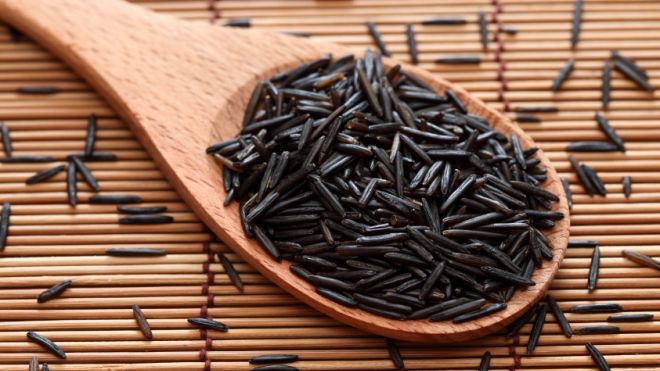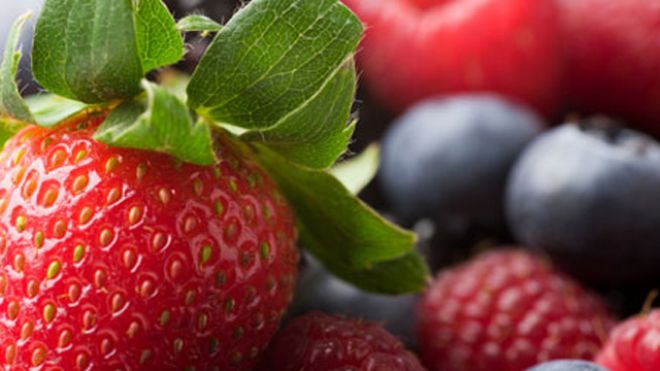
Green veggies have long been hailed as the go-to good-for-you food, but dark fruits, veggies, and grains are nutritional powerhouses, too. Their color comes from anthocyanins, plant pigments that may help lower the risks of diabetes, heart disease, and cancer. In fact, “black foods have more antioxidants than light-colored foods because of their high pigment content,” said Cy Lee, a professor of food chemistry at Cornell University in Ithaca, New York. Can’t find one of these deep-hued superfoods at your local supermarket? Try natural-foods stores and ethnic groceries. Black rice Brown rice is good for you, but black rice is even better. That’s because the bran hull contains significantly higher amounts of vitamin E, which bolsters the immune system and protects cells from free radical damage. In fact, black rice contains more anthocyanin antioxidants than blueberries, according to a study from the Louisiana State University Agricultural Center. Health.com: Superfood Secrets for a Long and Healthy Life Black lentils These legumes are loaded with iron: One cup has about 8 milligrams, getting you almost halfway to the daily requirement of 18 milligrams for women. Lentils also boast high levels of soluble fiber, which may not only lower your cholesterol, but could also improve immune function, according to a new University of Illinois study. Blackberries Polyphenols found in dark berries may help reduce cognitive decline in older age by cleaning up cells that impair brain function, researchers at the Human Nutrition Research Center on Aging in Boston say. Blackberries are also hugely fiber-rich—one cup has almost 8 of the 25 grams you need daily. Health.com: Need More Fiber? Eat These Foods Black beans The dark skins of these beans are packed with bioflavonoids—potent plant-based nutrients that may protect against cancer, research out of Cornell University reveals. Black soybeans Move over, edamame. A Korean study found that eating black soybeans can help reduce the risk of thrombosis—a type of blood clot that’s potentially fatal—even more than yellow or green soybeans. And all soybean oil contains alpha-linolenic acid, a type of omega-3 fatty acid that may reduce the risk of heart disease. Health.com: The 10 Best Foods for Your Heart Black tea Green and white teas get all the health hype, but good old black tea has its perks, too. It contains theaflavins—antioxidants that a study from Rutgers University in New Jersey suggests may improve recovery from muscle soreness after intense exercise. Drinking black tea may also lower your risk of having a heart attack. This article originally appeared on Health.com.source : http://www.foxnews.com/health/2013/06/15/black-is-new-green-6-surprising-superfoods/

